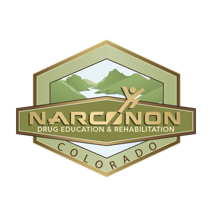More and More Children Are Being Born Addicted to Drugs

It has become a sad fact that the rate of children in the United States who are being born addicted to drugs has continued to rise over the past several years. Between an increase in opioid use, methamphetamine use and even alcohol use among women, the odds of a child being born with addiction have risen substantially.
A 2015 report by the New England Journal of Medicine found some startling statistics:
- The number of babies born in the United States that were addicted to drugs has quadrupled since 2004.
- 27 out of every 1,000 babies were born addicted to drugs in the year 2013.
- An estimated 19,000 meth users were also pregnant at the time of the report.
Statistics from other sources also indicate alarming rates of children being born addicted to drugs.
- According to the American Academy of Pediatrics, an estimated 40,000 babies in the United States are born with some form of Fetal Alcohol Spectrum Disorder (FASD) each year.
- The National Institute on Drug Abuse reports that every 15 minutes a baby is born suffering from opioid withdrawal.
The problem of women in the United States using drugs while pregnant is not just limited to street drugs but also expands to legal drugs such as alcohol, tobacco and prescription medications.
Drug and alcohol abuse while pregnant can lead to several complications for the mother and child during the pregnancy which includes, but are not limited to:
- High blood pressure that often leads to heart problems, kidney damage, and stroke.
- A higher risk of developing eclampsia which can lead to maternal death.
- Increased risk of miscarriage, premature birth, stillbirth, and fetal stroke.
- Increased risk of maternal death during and after childbirth.
- Increased risk of placental abruption.
Common complications that occur in children who were exposed to drugs and alcohol while developing in the womb include:
- Low birth weight.
- Fetal Alcohol Spectrum Disorder (FASD)
- Heart defects, DNA damage, birth defects, and hearing problems.
- Behavioral and emotional problems later in life.
This problem has been compounded even further by the under-reporting of drug use that occurs during pregnancy. Many women who are using while pregnant do not disclose their drug use to their doctor for fear of judgment. Many pregnant women who are struggling with substance abuse do not seek adequate medical care during their pregnancy for fear of the repercussions that would occur should their drug use be detected. Because of this far too many women are continuing on with substance abuse during their pregnancy instead of getting the help they so desperately need.
We are already seeing the short-term effects of this issue in babies that are born experiencing drug withdrawal. Over time we will begin to see the long term effects it will have on society as a whole.
While this is a multifaceted problem that will require several solutions to fix, some things that can be done to help better address this issue are:
- Provide more support systems for children who are born addicted to drugs.
- Make addiction treatment more accessible to pregnant women who need it.
- Provide more educational resources to women of childbearing age about the consequences of substance abuse during pregnancy.
If you or someone you know are pregnant and dealing with addiction it is important to reach out for help as soon as possible. The sooner the problem is addressed the better the chances are for both mother and child.
Resources:
- https://www.ncbi.nlm.nih.gov/pmc/articles/PMC5151516/
- https://www.npr.org/sections/health-shots/2018/11/29/668487475/another-drug-crisis-methamphetamine-use-by-pregnant-women
- https://www.aap.org/en-us/advocacy-and-policy/aap-health-initiatives/fetal-alcohol-spectrum-disorders-toolkit/Pages/Frequently-Asked-Questions.aspx
- https://www.drugabuse.gov/related-topics/trends-statistics/infographics/dramatic-increases-in-maternal-opioid-use-neonatal-abstinence-syndrome


